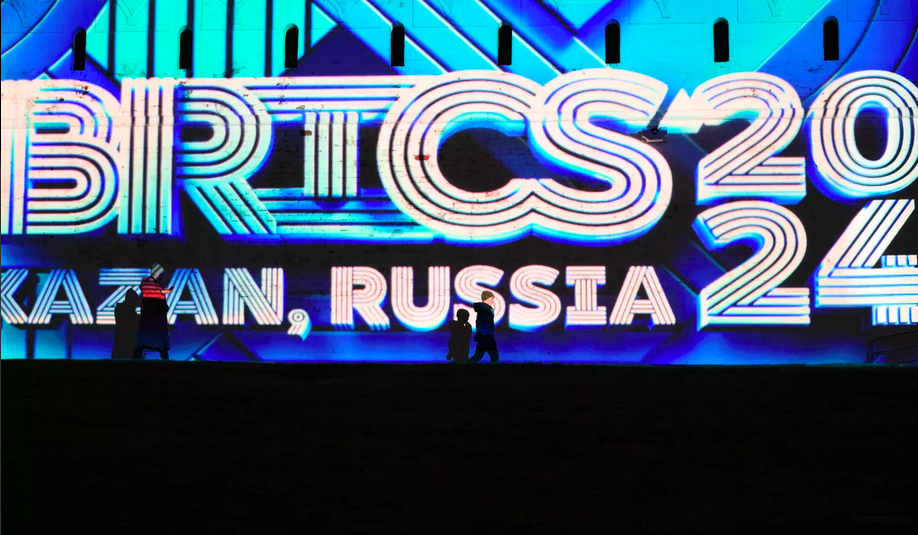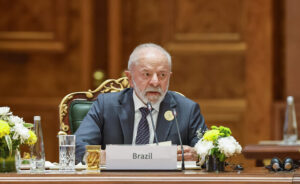
Published 10/21/2024 17:36 | Edited 10/21/2024 18:19
The BRICS annual meeting, which will be held between October 22nd and 24th, 2024, in Kazan, Russia, brings to light critical discussions about the role of the bloc founded by Brazil, Russia, India, China and South Africa in the new world order. With the theme “Strengthening Multilateralism for Development and Equitable Global Security”, the event takes place at a time of exacerbated geopolitical tensions, especially due to the war in Ukraine and the conflict between Israel and Palestine, in addition to global economic challenges that still resonate from the pandemic .
According to professor Augusto Leal Rinaldi, political scientist and specialist in BRICS, this year’s meeting is of utmost importance as it marks the official entry of new members to the bloc: Iran, Saudi Arabia, United Arab Emirates, Egypt and Ethiopia. For him, this expansion could significantly change the profile of the BRICS, including regional powers with their own economic and strategic interests, particularly in the Middle East and Africa. “The entry of countries like Iran and Saudi Arabia brings their rivalries and energy issues to the center of discussions. The expectation is that, with these additions, BRICS will expand its voice on topics such as security, energy and global economic development”, assesses the expert in an interview with Red Portal.
BRICS as an alternative multilateral platform

As the strategic rivalry between the United States and China intensifies, the BRICS may assume a growing role as an alternative to the US-led international order. Rinaldi highlights that the bloc, now expanded, has the potential to promote more equitable global development, challenging the Western narrative of a “rules-based order”. This criticism of Western hegemony could be central to the Kazan discussions, especially with regard to post-pandemic global economic recovery.
Furthermore, the professor believes that the war in Ukraine and its impacts on Russia will be at the top of the agenda. “With the conflict still ongoing, Russia will seek support or, at least, neutrality from the new BRICS members in its diplomatic efforts. The bloc can serve as a forum for multilateral negotiations involving war”, says Rinaldi.
Another important focus of the discussions will be the Middle East issue, exacerbated by Israel’s recent attacks on the Gaza Strip and Lebanon. “The presence of Iran, which supports the Palestinian cause and is directly involved in funding Hezbollah, will place the issue of the Israel-Palestine conflict in the spotlight. This will require BRICS to find a balance amid international pressures.”
“De-dollarization” and the economic mechanisms of BRICS
Among economic themes, the growing trend towards “de-dollarization” stands out. Although the term may be considered premature, Rinaldi highlights that the use of local currencies in commercial transactions within the BRICS has been intensifying, particularly between countries like Russia and Iran. “There is an expectation of creating financial mechanisms, perhaps even something similar to a ‘BRICS Pay’, which favors exchange between nations without the need for the US dollar”, he comments. However, he warns that this movement is still in its early stages.
Another important point will be the definition of clearer criteria for the entry of new members. Although a new immediate expansion is not expected, there is the possibility of creating a “partner” status, which would allow interested countries to approach the bloc before eventual accession.
Brazil’s role under Lula’s leadership
Brazil, with Lula at its head, can adopt a mediator stance in this complex scenario. Traditionally, Brazilian foreign policy seeks to balance its relations with different powers, and the country has interests both in strengthening the BRICS and in maintaining good relations with the USA and the European Union. “Brazil has the potential to be a facilitator of multilateral dialogues, proposing diplomatic solutions that help resolve global problems, whether in military, economic or political issues,” says Rinaldi.
For President Vladimir Putin, the BRICS meeting in Kazan offers an opportunity to reaffirm that Russia is not isolated from the international community, and that BRICS, with its growing relevance, can consolidate itself as a political force in the scenario of contemporary international relations. .
The BRICS meeting in 2024 will be an important milestone for the bloc, as new members bring new challenges and opportunities. With an agenda full of crucial issues, from energy security to the war in Ukraine and the crisis in the Middle East, BRICS can consolidate itself as an important forum for multilateralism, promoting a fairer and more balanced world order.
Source: vermelho.org.br

